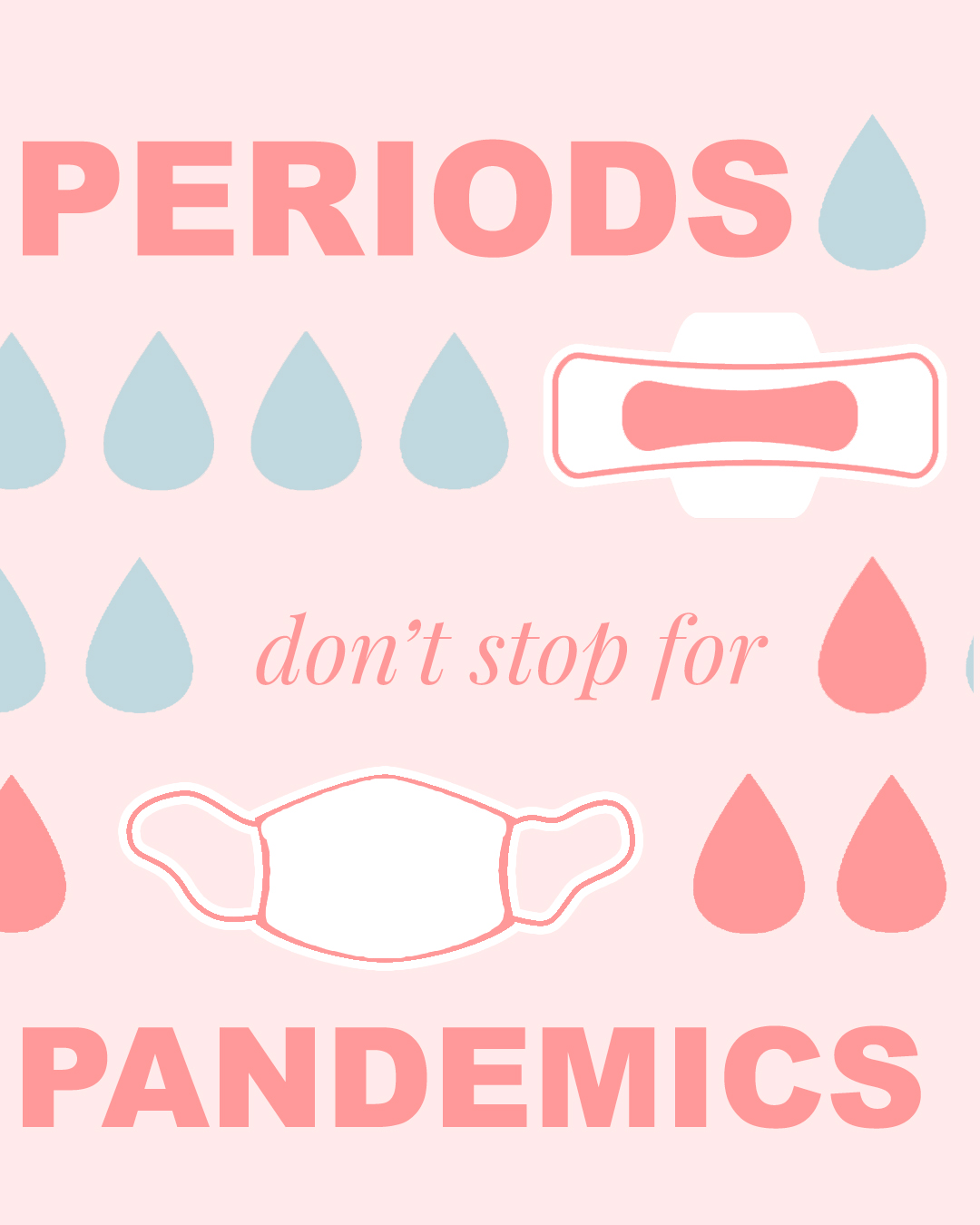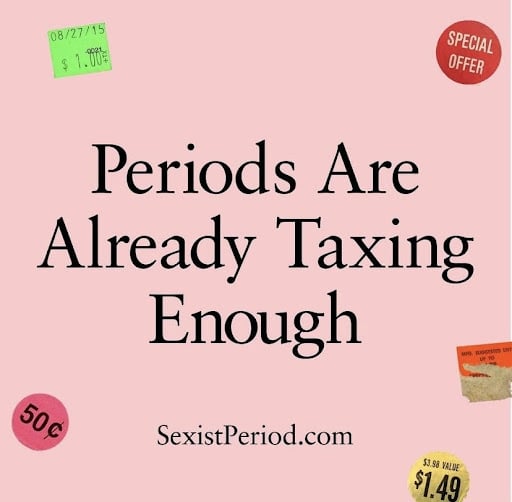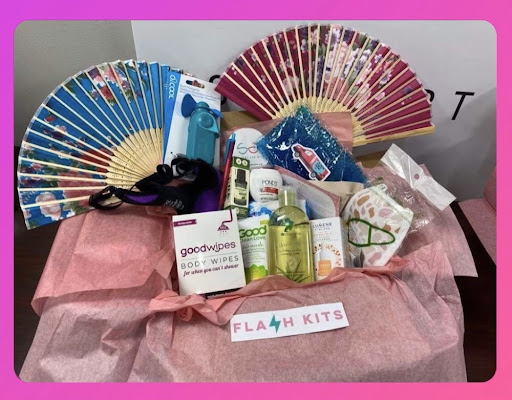By: Jenny Chen
Washington, DC joins the race to menstrual equity for all. They already eliminated the tampon tax in 2016, but now they are making strides for an even more equitable society for menstruators. Bill 24-0158, or Expanding Student Access to Period Products Act of 2021, introduced by Council Member Brooke Pinto, is trying to make menstrual education and access to products more accessible for students, to ultimately promote period equity for everyone in DC.
Financial Limitations from Unaffordable and Inaccessible Period Products
Period products, like maxipads and tampons, are expensive, especially when a household is experiencing financial insecurity. Despite their cost, these items are essential for menstruating people’s wellbeing and health. A survey conducted by INTIMINA and OnePoll found that 69% of menstruators think menstrual products are too expensive. The average woman spends $13.25 a month on menstrual products. That adds up to $6,260 throughout an average woman’s reproductive lifetime. The survey also found that 41% of menstruators would take a vacation or invest in future usage if they could save the money spent on menstrual hygiene care. 39% of menstruators said they would save that money to become homeowners.
Specifically, many college students suffer from period poverty. A study found that 68% of college students experiencing period poverty also experience moderate or severe depression. Period poverty is financially limiting menstruating individuals and it disproportionately affects them when they cannot afford or access period products, a basic necessity.
Part 1: Period products in all school bathrooms
The first part of Bill 24-0158 will require DC’s public, charter, and private schools, the University of the District of Columbia, and private post-secondary schools in the District to provide free period products in all women and gender-neutral restrooms. If a school does not have a gender-neutral restroom, they will be required to provide free period products in men’s restrooms as well.
“That’s a similar standard we have with toilet paper in our schools,” said Council Member Brooke Pinto. “Students are expected, rightfully so, to have access to toilet paper when they use the restroom. And the idea here is that they should absolutely have access to period products as well.”
The replenish rate for period products should be standard to the replenish rate of toilet paper in schools. Thinx released a new survey called “State of the Period 2021,” noting that two-thirds of students agree that too many people are missing out on valuable school time because they do not have the necessary period products. This bill would bring down the barrier that is preventing menstruating students from missing school time. It would provide them with the necessary resources to provide an equitable school environment for all. The need for menstrual hygiene items, just like the need for toilet paper, is a basic necessity to manage a normal bodily function. It is expected for toilet paper to be readily available; the expectation for period products should be the same.
Part 2: Menstrual education
The second part of the bill will require the Office of the State Superintendent of Education to develop and implement comprehensive health education standards on menstruation for every gender in DCPS and DCPCS, starting in the fourth grade.
According to the American College, menstruation can start between the ages of twelve and thirteen. However, there are some cases where menstruation can start as early as 7-years-old. According to WebMD, about 10% of White and Black girls started their menstrual cycle before the age of eleven.
“If your daughter is going through puberty earlier than her friends and classmates, she may feel isolated and embarrassed,” Dr. Sara Kreckman, UnityPoint Health pediatrician, said.
This is why it’s essential for children as early as fourth grade to be educated on their periods so they know what to expect.
It is also crucial for young girls and boys to have menstrual education to prevent period shaming. According to a survey by Thinx, it found that 42% of women experienced period shaming from comments by their male peers.
It’s important for children as early as 4th grade, regardless of their gender, to receive menstrual education to have a better understanding of their bodies and their peers’ bodies, and to prevent period shaming.
DC’s Menstrual Equity Bill Closing Barriers
COVID-19 created many barriers for menstruating individuals. During the beginning of the pandemic, I Support the Girls saw a 35% increase in product requests. The loss of income, stable housing, and emptied shelves in stores caused stress to households with menstruating individuals. This bill would ensure that people impacted financially by the pandemic would not have to worry about the cost of period products.
In addition to the barriers created by COVID-19, existing barriers causing disparities to people of color continue to thrive. The 2021 census found that 46% of the Washington, DC population are Black or African American. Research notes that Black women experiencing period poverty are at a higher risk of developing medical disorders like endometriosis, ovarian cancer, and polycystic ovary syndrome. This bill would help decrease these risks for the population of Black and African American menstruators affected by period poverty in Washington, DC.
I Support the Girls Supports Expanding Student Access to Period Products Act of 2021
Bill 24-0158 advocates for better physical, mental, and menstrual health for students. It provides free and accessible information and period products to students in Washington, DC. Just like how DC’s menstrual equity bill is providing free menstrual hygiene products, I Support the Girls also have been distributing free menstrual hygiene products to schools and organizations in the DC area to promote menstrual equity.
The bill was signed by Mayor Muriel Bowser on January 24th, 2022. With her signature, Bill 23-0158, Expanding Student Access to Period Products, passed and will be enacted in Washington, DC– making our nation’s capital a more equitable place for every gender.
Sources:
- https://swnsdigital.com/us/2019/11/new-research-reveals-how-much-the-average-woman-spends-per-month-on-menstrual-products/#:~:text=Results%20revealed%20the%20average%20woman,(ages%2012%2D52)
- https://bmcwomenshealth.biomedcentral.com/articles/10.1186/s12905-020-01149-5
- https://trackbill.com/bill/district-of-columbia-bill-158-expanding-student-access-to-period-products-act-of-2021/2089795/
- https://wtop.com/dc/2022/01/dc-council-bill-to-provide-free-period-products-for-city-teens/
- https://www.shethinx.com/blogs/thinx-piece/state-of-the-period-2021
- https://trackbill.com/bill/district-of-columbia-bill-158-expanding-student-access-to-period-products-act-of-2021/2089795/
- https://www.webmd.com/baby/news/20021009/girls-menstruating-earlier#:~:text=About%2010%25%20of%20white%20girls,cancer%2C%20obesity%2C%20and%20miscarriage.
- https://www.acog.org/clinical/clinical-guidance/committee-opinion/articles/2015/12/menstruation-in-girls-and-adolescents-using-the-menstrual-cycle-as-a-vital-sign
- https://www.independent.co.uk/life-style/women-periods-ashamed-menstruation-half-survey-a8143416.html
- https://www.census.gov/quickfacts/DC
- https://pubmed.ncbi.nlm.nih.gov/21108869/
- https://trackbill.com/bill/district-of-columbia-bill-158-expanding-student-access-to-period-products-act-of-2021/2089795/






